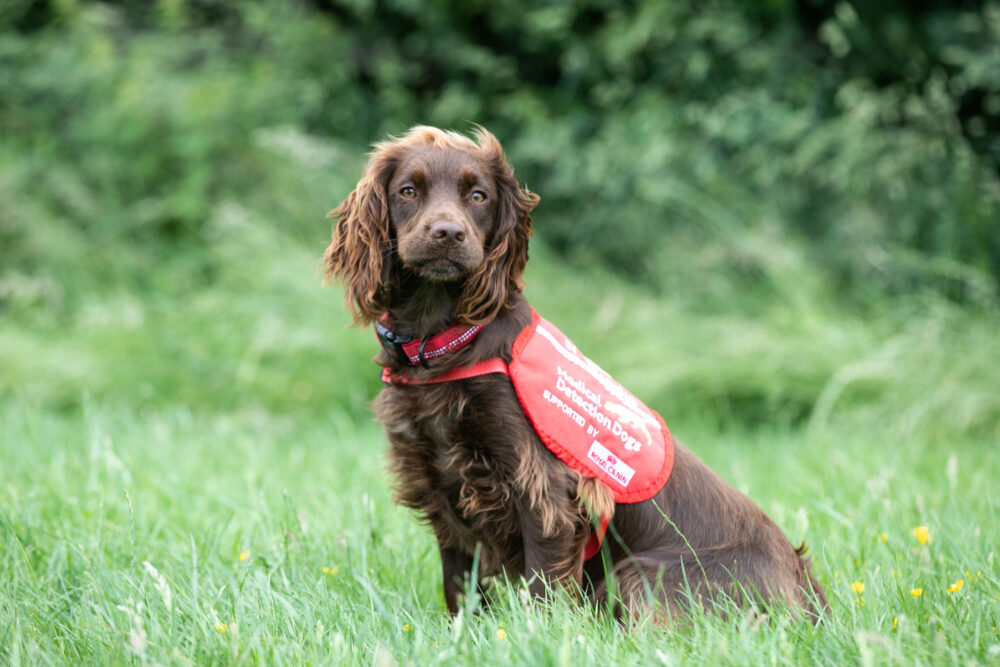OU News
News from The Open University
- Home
- PhD grant boosts Open University cancer research
PhD grant boosts Open University cancer research
Posted on • Science, maths, computing and technology

The Open University’s partnership with Medical Detection Dogs (MDD) is taking an exciting step forward thanks to a new PhD studentship starting later this year.
A grant from the Pet Plan Charitable Trust will enable a doctoral student to join the team and conduct in-depth research into how dogs identify colorectal cancer, using cutting-edge machine learning and sensor technology to analyse the dogs’ reactions to biological samples. This work promises to significantly enhance bio-detection and shape future diagnostic tools.
Launched last year, the collaborative project is exploring the ability of dogs’ sense of smell to detect colorectal cancer at its earliest stages, with seven dogs being trained for the task.
By pinpointing unique scent signatures in urine samples, the dogs’ work could offer a non-invasive and highly sensitive method for early colorectal cancer diagnosis. This could lead to improved survival rates and treatment outcomes for patients.
The research is also paving the way for the development of bio-electronic sensors, potentially replicating the dogs’ scent-detecting abilities on a larger scale.
The PhD student will employ machine learning to analyse sensor data unobtrusively captured as the dogs interact with the biological samples they screen.
This will provide a better understanding of how dogs respond to the odour signature of volatile organic compounds present in the samples, potentially informing the development of bio-electronic sensors for widespread diagnostics.
The student will work with Professor Clara Mancini and her team at the OU, whose technology is used to train the detection dogs.
Professor Clara Mancini expressed her enthusiasm about the project’s latest developments:
“We are delighted to have received a grant from Pet Plan Charitable Trust, which is enabling us to fund a PhD studentship to develop a machine learning approach for analysing data produced by the dogs during cancer detection.
“This will allow us to gain a more detailed understanding of the dogs’ responses to biological samples and will advance bowel cancer detection by helping us make the most of bio-detection dogs’ extraordinary olfactory intelligence.”